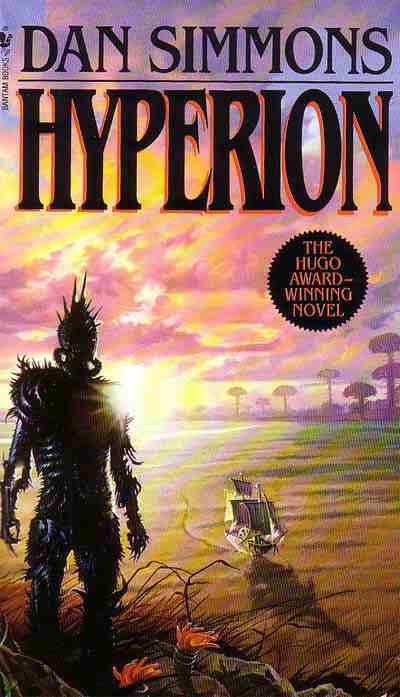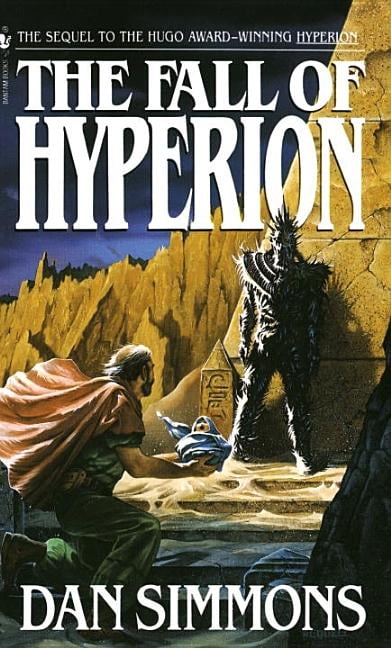
Thankfully, it’s not quite at a Haruki Murakami level, and this doesn’t much happen anymore in the really well written stuff of the genre, but I’m more embarrassed for the author than anything else, award winning fiction like this is fairly written in stone for future generations to examine. It’s just kind of eye-roll pervy, but it’s my only real gripe. There’s honestly only one thing I can objectively complain about here, and it’s more endemic to the genre during the time period this was written in than anything else: the way the narrator spends an inordinate amount of time describing women’s bodies, broken down into parts, particularly breasts and nipples. Hyperion has that indescribable, almost lovecraftian terror, dread and brooding present throughout, and one tale in particular left me unbearably heartbroken. I tend to judge the genre entirely too harshly at times, mostly because if I have any sort of professional knowledge, it’s in the Information Technology arena, and I have a difficult time suspending my disbelief about the realities of virtual worlds in regards to how they’re represented in cyberpunk. Mostly because it was more akin to cyberpunk than anything else, and I have a real love/hate affair with cyberpunk. Only one of them fell slightly flat for me. This is equally both.Įach tale feels like a slightly different genre married to science fiction, and the interstitial sections weave them together tightly. I’ve read other collections that are also novels, but they’re always more one or the other.

It’s really quite breathtaking to see this done so well. Each story genuinely adds to the forward narrative, by going backward. These stories are more technically novellas, because of their length, but you get what I’m saying. It’s heavily character based, and the only book I can honestly say is 100% both a novel, and a story collection. Instead of straight-forward narrative momentum, Hyperion is almost entirely the backstories of these pilgrims. It delivered on what I thought it was, but in a way I never imagined, and it was fantastic.

What I got was partly what I anticipated, but in a very left-field form, which was such a refreshing subversion of my what I thought I was getting myself into. Obviously, coming into the novel my expectations were high, and I knew the most basic gist of the plot: a pilgrimage across a world to meet an unimaginable being.

It’s most often compared to Dune, The Book of the New Sun, or other great works of Science Fantasy. Thankfully, I finally got there, and Hyperion was not what I expected, in the best way possible.

Had I been more of an active reader in the nineties, I’m sure I would’ve come to it much sooner. This is another one of those classics of SF literature that I have somehow missed reading over the years.


 0 kommentar(er)
0 kommentar(er)
